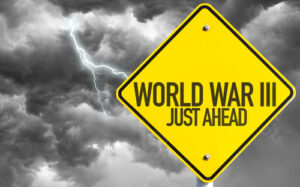Historical Echoes: Understanding the Present Through the Lens of the Past

At Extreme Investor Network, we believe that history serves as our greatest teacher. Many today are puzzled by the actions of global leaders, and it’s crucial to reflect on pivotal events that shaped our world, such as the lead-up to World War I. While some may dismiss the parallels, the insights drawn from history can provide valuable lessons in understanding the current geopolitical landscape.
An Elder’s Perspective
A poignant comment from a 91-year-old, who witnessed the complexities of life during WWII in Europe, leads us to ponder: why do today’s leaders overlook the ominous signs echoing from our past? As he insightfully points out, history is not just a series of events but a reminder of the consequences that follow geopolitical miscalculations.
History Repeats Itself
The Spark: Assassination and Escalation (1914)
June 28, 1914: The assassination of Archduke Franz Ferdinand of Austria-Hungary by Gavrilo Princip, a Bosnian Serb nationalist, set in motion a chain of events that spiraled into World War I.
The July Crisis: Austria-Hungary, backed by Germany, issued an ultimatum to Serbia. Serbia’s partial compliance was irrelevant; by July 28, war was declared.
What followed was a rapid escalation of hostilities, with complex alliances and national interests colliding. The German advance in the West was halted at the First Battle of the Marne in September, leading to a grueling stalemate that spanned from Switzerland to the North Sea.
The outcomes of early conflicts, such as Russia’s crushing defeat at Tannenberg and Austria-Hungary’s struggles against Serbia and Russia, illustrate how quickly tensions can escalate. Concurrently, alongside these conflicts, the Ottoman Empire allied with the Central Powers, creating further global implications.
Modern Parallels
Fast forward to today, where we are witnessing similar geopolitical tensions, particularly involving NATO and Ukraine. Recent military maneuvers appear to be a response not merely of regional dynamics but of greater strategic ambitions reminiscent of historical conflicts. The deployment of nuclear bombers does not signify a defensive stance; rather, they echo past aggressions witnessed during the onset of World War I and the invasions of World War II.
Just as the assassination of Franz Ferdinand marked the beginning of an extensive conflict, today’s events remind us that actions taken in the name of alliance may lead to unforeseen consequences. As history has shown, the line between defense and aggression can blur, leading to unintended warfare.
The Need for Awareness and Reflection
At Extreme Investor Network, our mission is to foster a deeper understanding of economic and geopolitical events through the lens of historical context. We encourage you to reflect on how the lessons of the past can illuminate our current situation. Ignoring these historical parallels leaves us vulnerable to making the same mistakes that led to catastrophic global conflicts.
As we navigate an increasingly complex world, let us share insights, draw connections, and learn from our collective history. After all, understanding the past is essential for building a more informed and peaceful future.
Join us in exploring these themes at the Extreme Investor Network, where we provide not just information, but a comprehensive analysis to empower your understanding of economics and world affairs.

